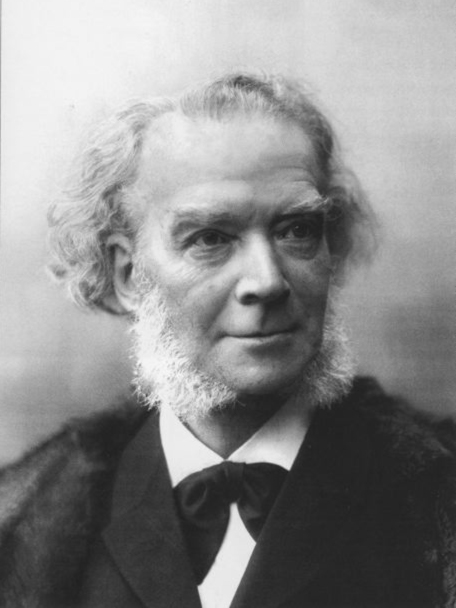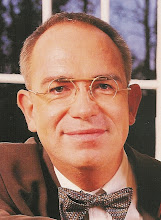
One of the most significant historical recordings is surely this Welte-Mignon piano roll recorded by the 80-year-old Carl Reinecke in January, 1905. Reinecke is thus probably the oldest instrumentalist on record. With a 35-year tenure as conductor of the Gewandhaus Orchestra in Leipzig, Reinecke occupied a central position in German musical life in the second half of the 19th century.
Reinecke is today best known for his compositions, but in his own day he was appreciated as a connoiseur of Mozart's music. Here Reinecke with his own transcription of the Larghetto from Mozart's Piano Concerto in D Major, KV 537.
Download link:
http://www.divshare.com/download/3870989-655

5 comments:
i really appreciate this recording, but it's not downloadable. how come?
Reinecke may have been one of the first to record, but his "interpretations" are rather cold, regular, sterile and modernistic.
Contemporary accounts even call him metronomic.
„Die Wirkung des herrlichen Stücks [Passacaglia von Bach, instrumentirt von H. Esser] in dieser Form würde eine weit bedeutendere gewesen sein, wenn der metronomisch-maschinenhafte Takt unseres Capellmeisters nicht nahezu alles innere Leben, alle freie Bewegung ertödtet hätte. Uns ist es namentlich unbegreiflich, wie ein guter Musiker, als den wir doch Herrn Reinecke längst kennen gelernt haben, die Fuge am Schluss genau in demselben Tempo geben konnte, da sie doch eine Beschleunigung desselben nicht nur zulässt, sondern erfordert.“ ref
Wagner said:
„Herr Kapellmeister Reinecke, welcher der Aufführung des Stückes unter meiner Leitung beigewohnt hatte, dirigirte es diesmal, und die gleichen Musiker führten es unter seiner Leitung so aus, daß es vom Publikum ausgezischt werden konnte. Ob dieser Erfolg der Biederkeit der hierbei Betheiligten allein zu verdanken war, d. h. ob absichtliche Entstellung dazu führte, will ich nicht näher untersuchen, und zwar schon aus dem Grunde, weil mir die gänzlich unverstellte Unfähigkeit unserer Dirigenten gar zu einleuchtend bekannt ist: genug, von sehr eingeweihten Ohrenzeugen erfuhr ich, welchen Takt der Herr Kapellmeister zu meinem Vorspiele geschlagen hatte, und damit wußte ich genug.“ ref
And the following statement also exists:
[Reinecke] Etwas vermisste man zuweilen an seinem Spiele: namentlich bei der Romanesca, Waerme und Energie.ref
Best wishes,
...
The Larghetto as played by Reinecke has never inspired me. It's oh so balanced, oh so boring! (and apparently been treated in someone's thesis).
Is it time for a critical re-evaluation???
:)
Hi Anonymous!
And thanks for your posts, which I was fascinated to read. I have an article on Reinecke's Mozart recording in "About Bach", a collection of essays in honor of Christoph Wolff, published a year or two ago. In this article I explain the significance of this recording.
That a contemporary critic found his conducting of Bach too metronomic is a terrific snapshot of the power of the flexibility paradigm at the time the review was written.
That Wagner spared no pains to make it clear that Reinecke's approach was not in his way of thinking says a lot, I think, about Reinecke's stature in Wagner's eyes.
I agree that Reinecke's interpretations are conservative, compared with some contemporary interpretations of later repertoire.
On the other hand, Leschetizsky's Mozart I find even more severe.
Thanks for your interest!
Robert Hill
Hi there!
Thanks for your reply. I've just been looking for early recordings of Mozart, because of your mentioning of Leschetizky.
There is an interesting listing at Mozarteum ! (Search for "Klavier")
Oh and I came across a great page with Balbastre's Romance etc.: http://www.phonozoic.net/
There's also another version here:
http://pagesperso-orange.fr/organ-au-logis/Pages/Interprete.htm
It seems that Balbastre's romance is sequenced from a score: I cannot hear any phrasing. And the image here seems to be a visual confirmation that it is just mathematical ruler-work; and not an interpretative record. Am I correct in this?
And I have a very interesting recording of barrel organs from the early 19th century (I've got Vol. 3 "Wiener Flötenuhren um 1800", but unfortunately the tracks play at a much too fast speed - I still want to use a program such as audacity, to slow it down to a more "musical" and enjoyable speed).
Also, I've been looking at a performance of Haendel, as preserved in a historic barrel organ: 1, 2, 3, 4
Kind regards,
...
PS: my instrument is the guitar - and no; I'm not smithsherman. But I've had some conversations with him, a while back - he seems to have disappeared. Will his supposed Giuliani recording ever see the light of day? hehe
I'm hoping to make a recording myself someday . Perhaps also a doctoral thesis in music or so - e.g. during a during a sabbatical. Area of interest: 19th century music, esp. guitar repertoire... (But I don't know if that's possible, if the only other degree one has, is in something that has nothing to do with music...)
Post a Comment